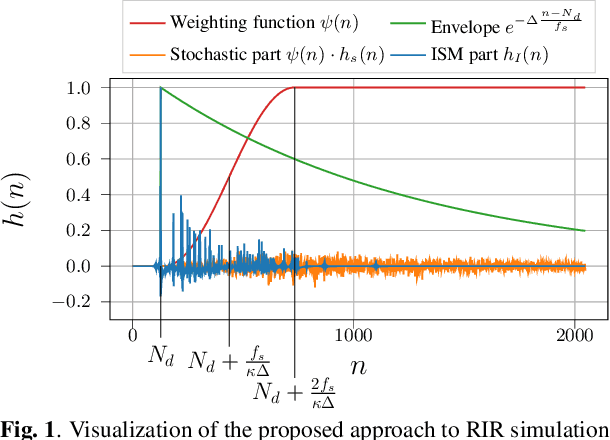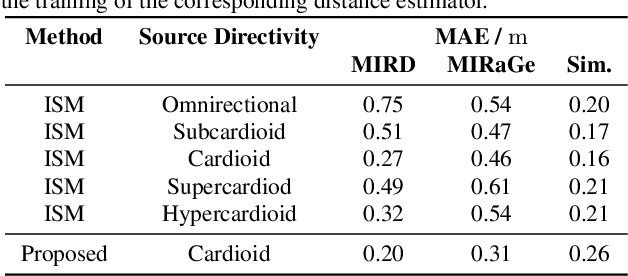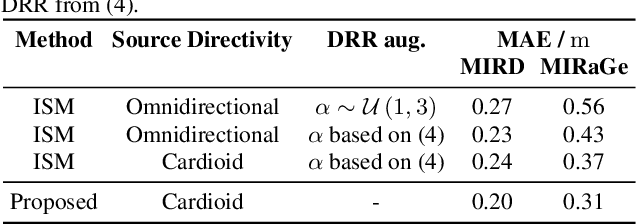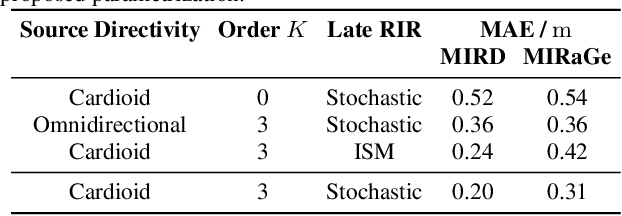Diminishing Domain Mismatch for DNN-Based Acoustic Distance Estimation via Stochastic Room Reverberation Models
Paper and Code
Aug 26, 2024



The room impulse response (RIR) encodes, among others, information about the distance of an acoustic source from the sensors. Deep neural networks (DNNs) have been shown to be able to extract that information for acoustic distance estimation. Since there exists only a very limited amount of annotated data, e.g., RIRs with distance information, training a DNN for acoustic distance estimation has to rely on simulated RIRs, resulting in an unavoidable mismatch to RIRs of real rooms. In this contribution, we show that this mismatch can be reduced by a novel combination of geometric and stochastic modeling of RIRs, resulting in a significantly improved distance estimation accuracy.
* Accepted for publication IWAENC 2024
 Add to Chrome
Add to Chrome Add to Firefox
Add to Firefox Add to Edge
Add to Edge